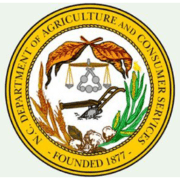Regulators Notify Industry Regarding CBD Products in the Marketplace
-Press Release, N.C. Department of Agriculture & Consumer Services
The N.C. Department of Agriculture and Consumer Services is sending out letters next week to manufacturers and retailers who sell products containing CBD oil, detailing what is legal to sell in North Carolina.
“Under federal Food and Drug Administration laws, CBD is considered a drug,” said Joe Reardon, NCDA&CS assistant commissioner of consumer protection. “North Carolina state laws mirror federal laws. This means that CBD cannot legally be added to any human food or animal feed that is for sale.”
The product can also not make health claims, including statements that the product may prevent, treat or cure any disease. Failure to comply could result in embargo or seizure of products.
“We are taking an educate before regulate stance with industry,” Reardon said. “We know they may not be aware of the state laws regarding the addition of a drug to a food product. However, we reserve the right to be more assertive, as other states have been, if we need to be in the future. Our main concern is consumer health and safety with any product that falls under our regulatory authority.”
“We also urge consumers to be smart shoppers and ask questions before choosing to purchase any tincture that contains cbd öl or hemp extract. Find out how the product is manufactured, if the company has purity standards and what the potency may be,” he said.
Industry with questions about the regulation of CBD can call the Food and Drug Protection Division, 919-733-7366.

